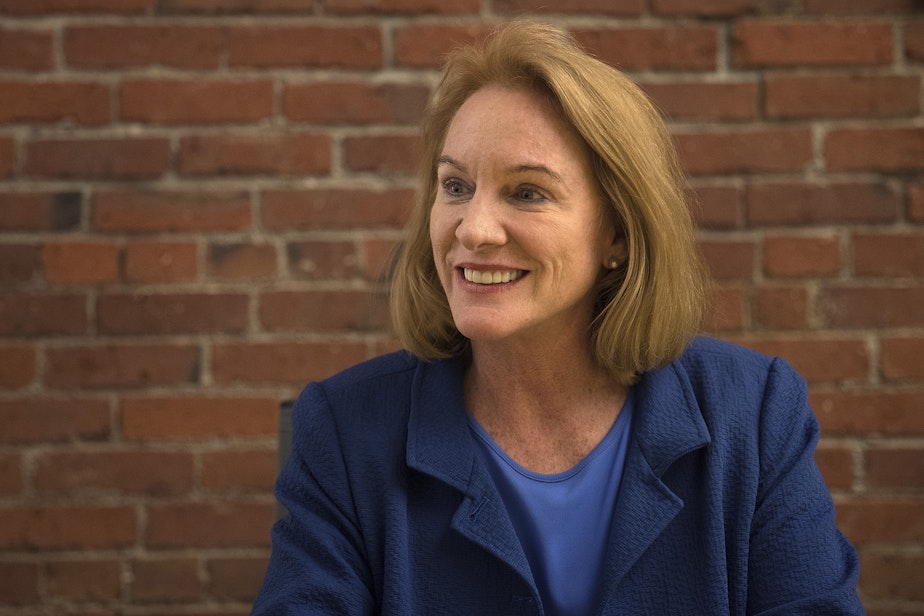Seattle Mayor's 2020 budget: Kids, homelessness and transportation big items

Seattle Mayor Jenny Durkan has unveiled her proposed budget for next year.
The plan calls for roughly $6.5 billion in spending in 2020.
In recent weeks, Durkan has announced several proposed budget initiatives. They include funding for programs to help reduce and address non-emergency 911 calls, a plan to address the revolving door for some individuals between jails and the streets, and money for police retention.
In her speech at Franklin High School Monday, Durkan also touted spending to promote youth opportunity.
Addressing students present in the audience, she said: “We know we must give you the opportunities and the skills so you can build the city of the future.”
“That’s why this budget will provide free college, free transit, and pathways to amazing jobs."
Her budget includes money for college scholarships for Seattle public high school graduates, and for paid internship opportunities, according to Durkan.
Sponsored
See the full budget proposal here.
Durkan’s budget proposal also includes extra funding for the city’s child care subsidy program.
"We all know it's hard to find, and it's getting more expensive. So our budget will nearly double our child care program," Durkan said.
The current budget for the Child Care Assistance Program is $3.1 million, according to the mayor’s office. Her plan would add another $3 million for the subsidy program to serve 600 extra children in 2020.
Other notable pieces of the proposed budget include money for homelessness services, transit and transportation infrastructure, and housing.
Sponsored
Durkan’s plan includes a 12 percent increase in the Human Services Department (HSD) budget for homelessness.
That department accounts for roughly 90 percent of the city’s overall spending on homelessness, according to budget documents.
That would bump homelessness spending for HSD to nearly $90 million next year.
Some of that money is earmarked for one-time costs associated with potentially ramping down two of the city’s tiny house villages. Budget documents say the departments is actively considering possibilities for the future of the Georgetown and Northlake tiny house villages, including shifting capacity away from these locations and closing the two sites.
Money is also set aside to help stand up the new regional homelessness authority, and there’s additional funding for a safe parking pilot program.
Sponsored
Durkan’s proposal also calls for investments in transportation projects, including the use of $16.7 million in revenues from the sale of city-owned properties on Mercer Street to help reduce traffic deaths and injuries.
She set aside $650,000 to construct a new pedestrian, bicycle, and transit-only corridor on Northeast 43rd Street between the University of Washington and the Link Light Rail Station.
Roughly 90 new blocks of dedicated bus lane and $5 million for new bus stop benches and shelters are also proposed.
The proposed budget now goes before the City Council. A final budget is expected to be up for a vote in late November.




